
7 Best Coffee Brewers for Stove To Buy In 2023
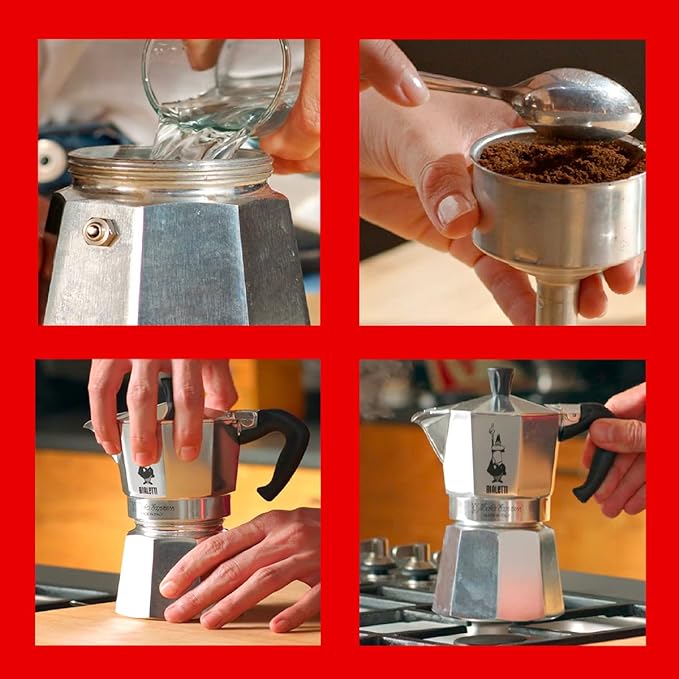
Coffee is an essential part of many people’s daily routine. For those who appreciate the ritual of brewing a perfect cup, a stove-top coffee brewer can be a game changer.
This guide reviews the 7 best coffee brewers for the stove, helping you choose the ideal one for your home.
Tips for Choosing a Coffee Brewer for Stove
When selecting a coffee brewer for your stove, there are several factors to consider to ensure you get the most out of your coffee experience. Here are some essential tips:
1. Consider Your Coffee Preferences
- Flavor Profile: Different brewers produce different flavor profiles. For instance, a Moka pot gives a strong, espresso-like coffee, while a French Press offers a more full-bodied flavor.
- Brewing Time: Some brewers, like a pour-over, take more time but offer more control over the brewing process.
2. Assess the Brewer Capacity
- Single vs. Multiple Servings: If you typically make coffee for one, a smaller capacity brewer like a pour-over cone or a single-serve espresso maker might be ideal. For multiple servings, consider a larger French Press or a percolator.
3. Material Matters
- Heat Conductivity and Durability: Stainless steel and aluminum are common materials. Stainless steel is more durable and doesn’t alter the flavor but is usually heavier and more expensive. Aluminum heats up faster but can affect taste over time.
- Aesthetic Appeal: Consider how the material and design of the brewer will look in your kitchen.
4. Ease of Maintenance
- Cleaning Requirements: Some brewers require more effort to clean. For example, a French Press needs thorough cleaning to remove coffee grounds, while a Moka pot is relatively easier to maintain.
- Durability: Consider how easy it is to replace parts or repair the brewer.
5. Compatibility with Your Stove
- Stove Type: Not all coffee brewers are suitable for all stove types. For instance, some brewers are not compatible with induction stoves.
- Size and Stability: Ensure the brewer fits well on your stove and remains stable during brewing.
6. Budget Considerations
- Initial Cost vs. Long-Term Value: More expensive models might offer better durability or a superior coffee experience. Determine your budget and consider the long-term value of the brewer.
- Running Costs: Consider any additional costs, such as the need for special filters or coffee grounds.
7. Brand Reputation and Reviews
- Customer Feedback: Look for reviews and feedback from other users. This can provide real-world insights into the brewer’s performance and longevity.
- Brand Support: A reputable brand often ensures better customer support and warranty options.
8. Personal Lifestyle
- Time and Effort: If you have a busy lifestyle, you might prefer a brewer that’s quick and easy to use.
- Space Considerations: Make sure the brewer fits comfortably in your kitchen space.
Tips for Maintaining a Coffee Brewer for Stove
Proper maintenance of your stove-top coffee brewer is crucial for ensuring the longevity of the device and the quality of the coffee it produces. Here are some key tips to help you keep your coffee brewer in top condition:
1. Regular Cleaning
- After Each Use: Rinse the brewer with warm water after each use to remove coffee oils and residue.
- Deep Cleaning: Periodically perform a deep cleaning with a mild detergent or a specific coffee equipment cleaner, especially for brewers with intricate parts like a Moka pot or a siphon brewer.
2. Descaling
- Frequency: Depending on the hardness of your water, descale your coffee brewer every 1-3 months.
- Method: Use a descaling solution or a mixture of water and vinegar to remove mineral build-up.
3. Avoiding Corrosion and Damage
- Dry Completely: After washing, ensure all parts are completely dry before reassembling to prevent corrosion, especially for metal parts.
- Gentle Handling: Be careful with glass or ceramic parts, and avoid using abrasive scrubbers on metal surfaces.
4. Proper Storage
- Ventilation: Store your brewer in a dry place with good ventilation to prevent mold and stale odors.
- Separate Parts: If possible, store the brewer disassembled or with the lid off to allow air circulation.
5. Regular Inspection
- Check for Wear and Tear: Regularly inspect seals, valves, and other moving parts for wear and tear, and replace them as necessary.
- Look for Cracks: For glass or ceramic brewers, check for cracks or chips that could lead to breakage.
6. Using the Right Supplies
- Water Quality: Use filtered water to improve taste and reduce scale buildup.
- Correct Grind Size: Using the correct grind size for your brewer type can prevent over-extraction and residue buildup.
7. Avoiding Common Mistakes
- Do Not Overheat: Avoid placing your brewer on a heat source that is too high, as this can damage the brewer and alter the taste of the coffee.
- Do Not Leave Coffee in Brewer: Do not leave used coffee grounds in the brewer for an extended period to avoid mold and stubborn residue.
8. Handling and Usage
- Gentle Use: Avoid dropping or knocking the brewer, as this can misalign parts or cause damage, especially in delicate brewers like siphons or ceramic pour-overs.
- Correct Assembly: Ensure that all parts are correctly assembled before each use to prevent leaks and damage.
7 Best Coffee Brewers for Stove
1. Moka Pot Classic

The Moka Pot Classic is an iconic stovetop coffee maker known for its durability and rich espresso-like coffee. It’s available in various sizes, catering to different family sizes.
- Capacity: Available in 1, 3, 6, and 9 cup sizes
- Material: Aluminum
- Price Range: Low to Mid-range
Pros:
- Affordable
- Robust coffee flavor
- Compact and easy to store
Cons:
- Not suitable for induction stoves
- Aluminum can alter flavor over time
2. Stainless Steel French Press

A Stainless Steel French Press is perfect for those who prefer a full-bodied coffee. Its double-walled construction keeps coffee hot for longer.
- Capacity: 34 oz
- Material: Stainless Steel
- Price Range: Mid-range
Pros:
- Durable and rust-resistant
- Maintains temperature
- Easy to clean
Cons:
- Heavier than glass versions
- Requires coarse ground coffee
3. Ceramic Pour-Over Cone

The Ceramic Pour-Over Cone allows for a customizable brewing experience, ideal for single cups of coffee.
- Capacity: 1-2 cups
- Material: Ceramic
- Price Range: Low
Pros:
- Affordable
- Rich flavor extraction
- Easy to use
Cons:
- Fragile
- Time-consuming
4. Percolator Coffee Pot
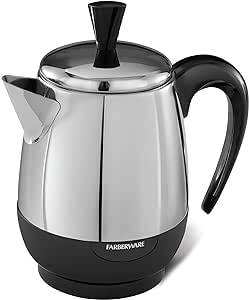
A Percolator Coffee Pot is a classic choice for strong, bold coffee. It’s great for large groups and camping trips.
- Capacity: 12 cups
- Material: Stainless Steel
- Price Range: Low to Mid-range
Pros:
- Large capacity
- Durable
- Portable
Cons:
- Can over-extract coffee
- Requires attention while brewing
5. Espresso Stovetop Maker
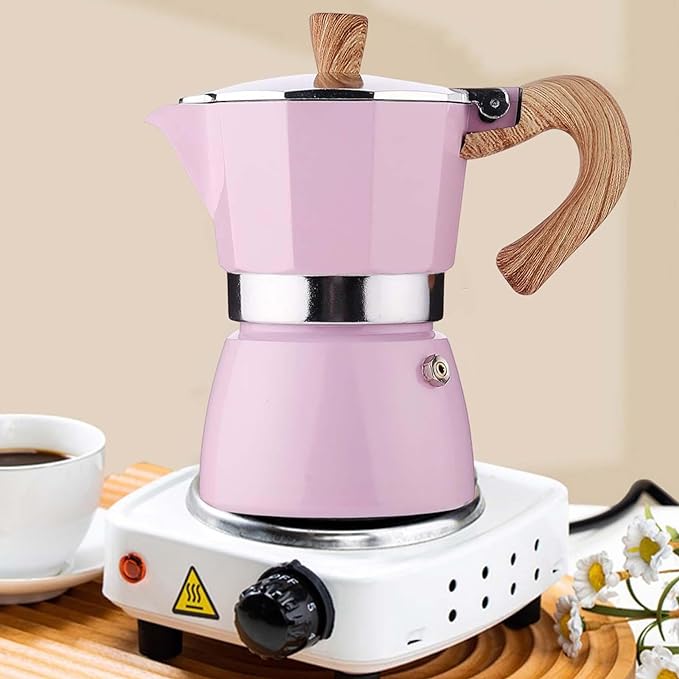
An Espresso Stovetop Maker is ideal for espresso enthusiasts. It produces a rich and concentrated cup of coffee.
- Capacity: 6 cups
- Material: Aluminum or Stainless Steel
- Price Range: Mid to High
Pros:
- Compact design
- Strong, rich coffee
- Suitable for most stovetops
Cons:
- Higher price
- Requires fine coffee grounds
6. Vacuum Siphon Coffee Maker
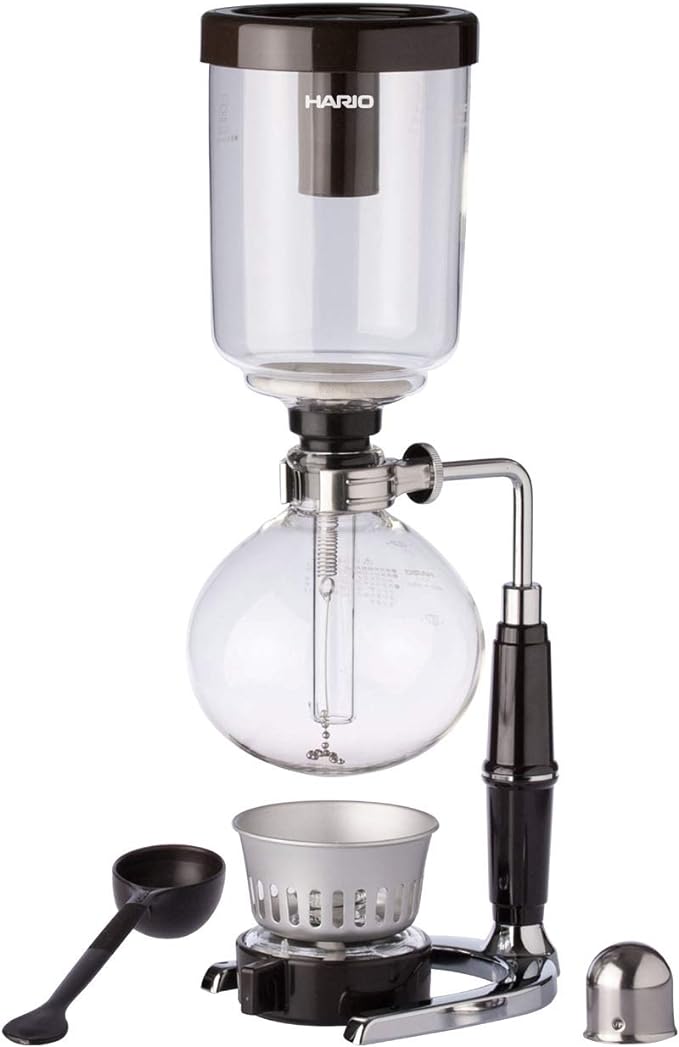
The Vacuum Siphon Coffee Maker offers a unique brewing experience and a clean, crisp cup of coffee.
- Capacity: 5 cups
- Material: Glass and Stainless Steel
- Price Range: High
Pros:
- Excellent flavor extraction
- Visually appealing
- Entertaining brewing process
Cons:
- Fragile
- Complicated to use
7. Turkish Coffee Pot
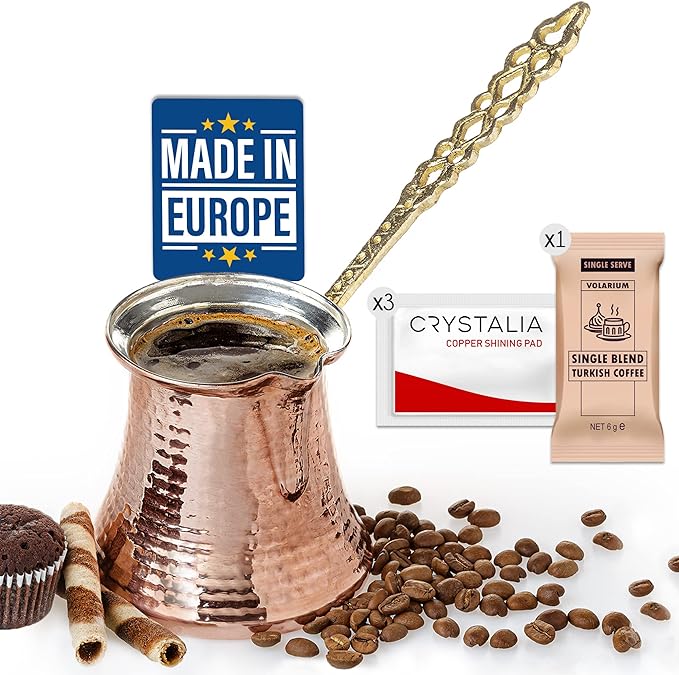
For those who enjoy a strong, unfiltered coffee, the Turkish Coffee Pot is a traditional choice that delivers a unique taste.
- Capacity: 2-3 cups
- Material: Copper or Stainless Steel
- Price Range: Low to Mid
Pros:
- Authentic experience
- Strong, bold flavor
- Compact and easy to use
Cons:
- Requires fine grind
- Can be difficult to clean
Buying Considerations
When choosing a coffee brewer for the stove, consider the following:
- Capacity: How much coffee do you typically brew at a time?
- Material: Stainless steel lasts longer, but aluminum and copper can affect flavor.
- Ease of Cleaning: Some models require more maintenance than others.
- Price: Determine your budget and find a brewer that offers the best value for your needs.
Conclusion
Each of these seven coffee brewers offers a unique brewing experience. Whether you’re a fan of rich, espresso-like coffee, or you prefer a lighter, more nuanced flavor, there’s a stove-top coffee brewer for you. Remember, the best coffee brewer is one that suits your taste, lifestyle, and budget.
Important Note: Always follow the manufacturer’s instructions for use and cleaning to ensure the longevity and performance of your coffee brewer.
Choose wisely and enjoy the ritual of brewing your perfect cup of coffee every day!
Frequently Asked Questions About Coffee Brewer for Stove
When it comes to stove-top coffee brewing, several common questions often arise. Here are some of the frequently asked questions that can help you better understand and utilize your coffee brewer for the stove:
1. What Types of Coffee Brewers are Suitable for a Stove?
- Answer: There are various types, including Moka pots, percolators, Turkish coffee pots, and stovetop espresso makers. Each type offers a different brewing method and flavor profile.
2. Can All Coffee Brewers Be Used on Any Stove Type?
- Answer: Not all coffee brewers are compatible with every stove type. For example, traditional aluminum Moka pots are not suitable for induction stoves without an adapter.
3. How Do I Choose the Right Size Coffee Brewer?
- Answer: Consider the number of servings you typically need. Smaller brewers are great for individual servings, while larger ones are better for multiple cups.
4. What is the Best Way to Clean a Stovetop Coffee Brewer?
- Answer: Rinse with warm water after each use and periodically deep clean with a mild detergent. Descale regularly to remove mineral buildup, especially in areas with hard water.
5. How Often Should I Replace My Coffee Brewer?
- Answer: With proper maintenance, a good quality coffee brewer can last many years. Replace it if you notice persistent issues with taste, leaks, or if it becomes damaged.
6. What Grind Size Should I Use for a Stovetop Coffee Brewer?
- Answer: It depends on the type of brewer. For a Moka pot, a fine grind is ideal, while a coarser grind works better for a French Press.
7. Is It Safe to Leave a Coffee Brewer on the Stove Unattended?
- Answer: It is not recommended to leave a coffee brewer unattended on the stove, as this could pose a safety risk, especially with brewers like Moka pots that require close monitoring.
8. How Do I Prevent My Coffee from Tasting Bitter?
- Answer: Avoid over-extraction by not brewing for too long and using the correct water temperature. Ensuring the grind size is right for your brewer also helps.
9. Can I Use a Stovetop Coffee Brewer for Different Types of Coffee?
- Answer: Yes, but the results may vary. Some brewers are more versatile than others. Experimenting with different coffee types can be a fun way to find your preferred taste.
10. Why is My Stovetop Coffee Brewer Leaking?
- Answer: Leaks can be due to worn-out seals or gaskets, overfilling the water chamber, or improper assembly. Check the manufacturer’s guidelines for troubleshooting.






